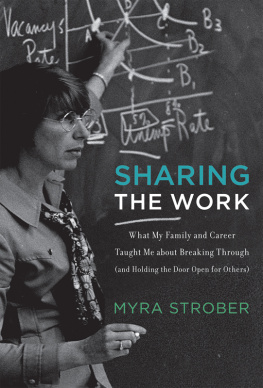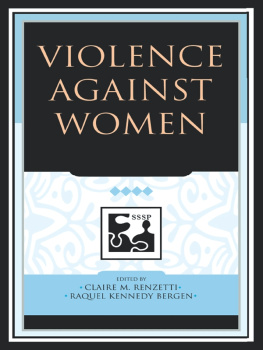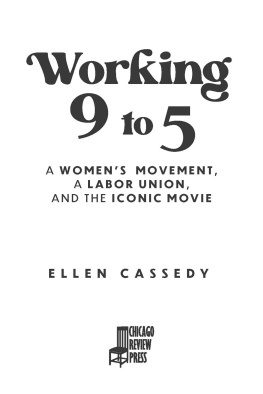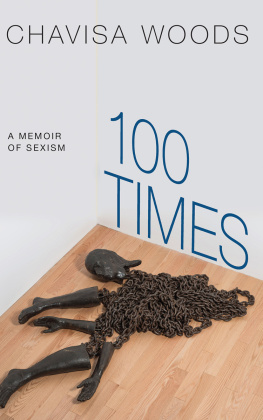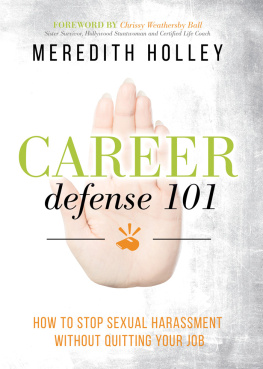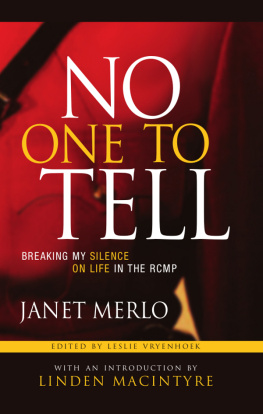I19701971
II19501970
III19712012
Sharing the Work
What My Family and Career Taught Me about Breaking Through (and Holding the Door Open for Others)
Myra Strober
Foreword by John Donahoe
The MIT Press
Cambridge, Massachusetts
London, England
2016 Massachusetts Institute of Technology
All rights reserved. No part of this book may be reproduced in any form by any electronic or mechanical means (including photocopying, recording, or information storage and retrieval) without permission in writing from the publisher.
This book was set in Sabon by Toppan Best-set Premedia Limited. Printed and bound in the United States of America.
Library of Congress Cataloging-in-Publication Data
Names: Strober, Myra H., author.
Title: Sharing the work : what my family and career taught me about breaking through (and holding the door open for others) / Myra Strober; foreword by John Donahoe.
Description: Cambridge, MA : MIT Press, [2015] | Includes index.
Identifiers: LCCN 2015039699 | ISBN 9780262034388 (hardcover : alk. paper)
eISBN 9780262332088
Subjects: LCSH: Strober, Myra H. | Women economistsUnited StatesBiography. | Women college teachersUnited StatesBiography. | Women in the professionsUnited States. | Sex discriminationUnited States. | Work and familyUnited States. | FeminismUnited States.
Classification: LCC HB119.S76 A3 2015 | DDC 330.092dc23 LC record available at http://lccn.loc.gov/2015039699
10987654321
Dedication: The gender revolution of the past fifty yearswomens increased participation in the world of work, combined with mens growing responsibilities for family lifehas been one of the most profound transformations of recent decades. As an activist, I helped bring about some of that change. As a researcher, I studied it.
Many of you have also been on the ground floor of this transformation, and you will recognize your own exhilaration and pain in my story. But others of you may have little awareness of the struggles that brought us to where we are today. Whatever your history, this book is dedicated to you, with the hope that my journey inspires you to imagine and initiate the next round of changeto succeed not only in your own career and family, but also to take strong action to break down gender and other discriminatory barriers in your workplace and in society as a whole.
Foreword
John Donahoe
The best memoirs teach us about ourselves. In sharing her personal story, Myra Strober has accomplished just that. In recounting her extraordinary life and trailblazing career as an activist, academic, wife, mother, and friend, she engages us with refreshing honesty, intellect, insight, and candor. For those of us who have lived through similar personal and professional experiences, as well as for those just starting out on this journey, Myras memoir is a must-read.
Our progress on gender equality in Myras lifetime is striking. And the work that remains to be done is equally sobering. Her powerful storytelling takes us back to moments and situations no longer imaginable. Yet she also pulls from those experiences and brings us dramatically into the present, reminding us of the challenges women still face each and every day to achieve true gender equality. The gender revolution is far from over.
Reading this compelling and timely memoir, I felt an uncanny familiarity. For more than 30 years, I have strived in my professional and personal life to promote, support, encourage, embrace, and model gender equality. A true partnership and shared vision with my wife, Eileen, has been foundational. That partnership enabled us to juggle demanding dual careers, raise four wonderful children, and navigate lifes everyday ups and downs. It hasnt been easy, but together weve succeeded in ways we often thought impossible.
Myras experience as a woman breaking into the male-dominated world of academia reminds me of Eileens early challenges in the male-dominated legal profession. And Myra was a wise and invaluable coach for me as a young leader during the 1990s as we sought to bring more gender equality into Bain Consulting. Her insight and example continued to influence me during my tenure as CEO of eBay. It is clear that Myras personal story reflects the confidence and courage of so many talented women who have persevered to create change and claim the careers they deserved.
In the end, we each deserve the opportunity to create the life we want. And that means the journey for gender equality continues. Many of the lessons Myra draws from her life are extremely relevant to us all today. Success requires hard work, but context matters. Public policies matter, workplace policies matter, attitudes and expectations matter. And no one can do it aloneeach of us needs to rely on family, friends, and professional allies.
Myras insights mirror my own experience and the advice Ive shared with others. Success happens, and positive change occurs, when we act with courage and conviction, build strong community, and keep fighting the good fight.
Myras memoir can inspire us all.
John Donahoe is Chair of the Board of Paypal and former CEO of eBay
Sisterhood Is Powerful, 19701971
Its because you live in Palo Alto, the chairman of Berkeleys economics department tells me.
I cant have a regular job here because I live in Palo Alto?
He nods.
Chairman Break is tall, with football-player shoulders, and although Im tall too, his massive frame towers over me. Hes the bigshot in of one of the most prestigious economics departments in the country. Im the assistant professor wannabe. If this meeting doesnt go well, he could decide not to hire me for next year. Under my jacket, rivulets of perspiration are making their way down my dress-for-success blouse.
You have to live in Berkeley to be on your tenure track?
Again he nods.
Im baffled. I never knew that. My husband, Sam, is a medical resident at Stanford and works incredibly long hours. Often he goes back to his lab late at night to check on his experiments. We have to live in Palo Alto.
OK, I say softly, getting up to leave. Thanks very much.
When I get to my office, my hands are shaking. I can hardly insert my key into the lock. I feel drained, disoriented. Did I take something out of the freezer for tonights dinner? Lamb chops? Hamburger? I dial home, but Margie, my babysitter, doesnt pick up. Shes probably taken the kids out somewhere.
I leave my office and walk across Sproul Plaza, surprisingly quiet after all the years of student demonstrations. Its 1970, and the Vietnam War is beginning to wind down. I slide into my full-size blue Chevy with a trunk large enough to hold both a stroller and a carriage, and review my meeting with Break. I spend a lot of time in Big Blue these days. Its about an hour between Palo Alto and Berkeley in the morning and longer in the late afternoon, and I do the commute three days a week.
Gradually, crawling in stop-and-go traffic toward the Bay Bridge, the absurdity of Breaks answer registers. My first response is to cry. I grope around in my purse, pull out some tissue, and dab at my eyes. But now the road is blurry. I switch my thoughts to my children.
Mommy, Mommy! Jason, my three-year-old, will scream with delight when he hears my key in the door. And Liz, eleven months, will follow his lead; shell speed across the living room on all fours, tug on my leg, and make joyful noises.
Suddenly, the traffic starts to move. I can never tell why the snarls dissolve, but Im always grateful. As I drive at normal speed, my thoughts turn back to Break, but this time, instead of tears, Im aware of growing angerat myself.
Whats wrong with you?

